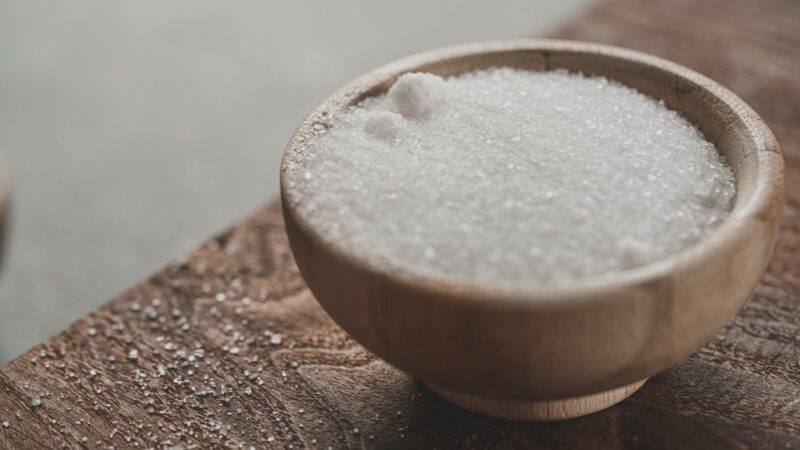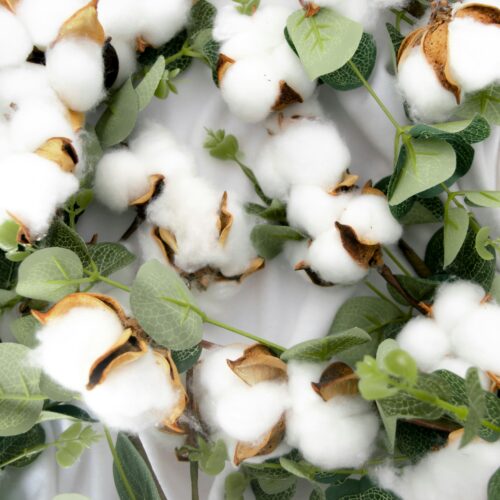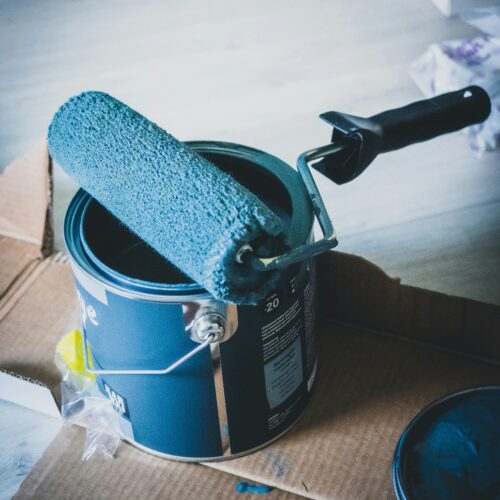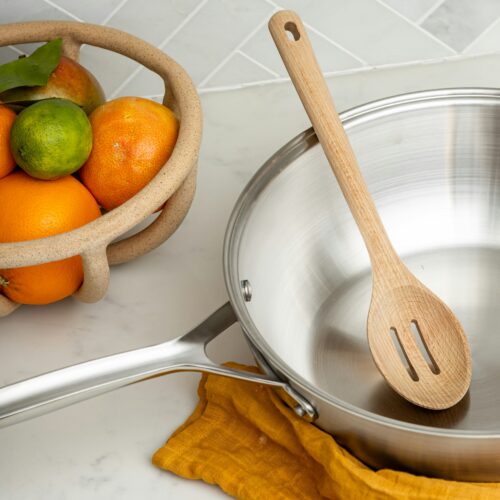Organic baking soda vs regular baking soda – Every little decision we make contributes to a more sustainable lifestyle. From the foods we eat to the products we use.
As more people seek environmentally friendly alternatives, organic baking soda has emerged as a must-have for green kitchens and eco-conscious households. Its versatility, purity, and minimal impact on the environment make it an essential ingredient for cooking, cleaning, and personal care.
What Is Baking Soda?
Baking soda, scientifically known as sodium bicarbonate (NaHCO?) or bicarbonate of soda – as is known in the UK, is a white crystalline chemical compound with a slightly salty taste. It is widely used in cooking, cleaning, and medicinal applications. Baking soda acts as a leavening agent in baking by releasing carbon dioxide gas. This happens when it is combined with an acidic ingredient such as lemon juice, sour cream, or cocoa powder, helping the dough to rise and creating a light, fluffy texture in baked goods.
Beyond baking, sodium bicarbonate has many other applications, ranging from household chores to personal care products. Its versatility makes it a cupboard staple in many households worldwide.
Best Uses for Baking Soda
Baking soda is a remarkably versatile natural product with applications across multiple domains. Here are some of its most common and effective uses:
Baking
The most well-known use of baking soda is in baking. When combined with dry acid ingredients like cream of tartar, lemon juice, or acidic cream, baking soda creates carbon dioxide bubbles that help dough rise. This chemical reaction is essential in recipes for quick breads, chocolate cakes, and muffins.
Example – Classic Fluffy Vegan Pancakes
1 cup flour
1 tbsp sugar
1 tsp pure baking soda
1 cup plant-based milk (e.g., almond or oat milk)
1 tbsp apple cider vinegar
1 tbsp melted coconut oil Mix the ingredients and cook on a greased pan for a delicious treat.
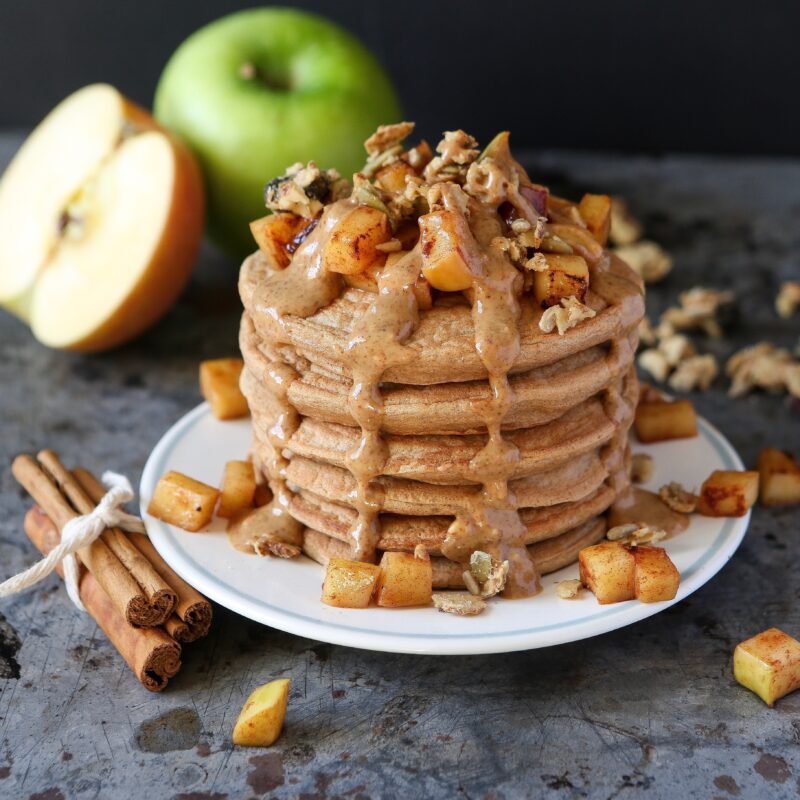
Organic Baking Soda vs Regular Baking Soda
10/02/2025
baking soda
Share
Share
Pin
Organic baking soda vs regular baking soda – Every little decision we make contributes to a more sustainable lifestyle. From the foods we eat to the products we use.
As more people seek environmentally friendly alternatives, organic baking soda has emerged as a must-have for green kitchens and eco-conscious households. Its versatility, purity, and minimal impact on the environment make it an essential ingredient for cooking, cleaning, and personal care.
For those of us in the UK, yes, baking soda is the same as bicarbonate of soda!
What Is Baking Soda?
Baking soda, scientifically known as sodium bicarbonate (NaHCO?) or bicarbonate of soda – as is known in the UK, is a white crystalline chemical compound with a slightly salty taste. It is widely used in cooking, cleaning, and medicinal applications. Baking soda acts as a leavening agent in baking by releasing carbon dioxide gas. This happens when it is combined with an acidic ingredient such as lemon juice, sour cream, or cocoa powder, helping the dough to rise and creating a light, fluffy texture in baked goods.
Beyond baking, sodium bicarbonate has many other applications, ranging from household chores to personal care products. Its versatility makes it a cupboard staple in many households worldwide.
Best Uses for Baking Soda
Baking soda is a remarkably versatile natural product with applications across multiple domains. Here are some of its most common and effective uses:
Baking
The most well-known use of baking soda is in baking. When combined with dry acid ingredients like cream of tartar, lemon juice, or acidic cream, baking soda creates carbon dioxide bubbles that help dough rise. This chemical reaction is essential in recipes for quick breads, chocolate cakes, and muffins.
Example – Classic Fluffy Vegan Pancakes
1 cup flour
1 tbsp sugar
1 tsp pure baking soda
1 cup plant-based milk (e.g., almond or oat milk)
1 tbsp apple cider vinegar
1 tbsp melted coconut oil Mix the ingredients and cook on a greased pan for a delicious treat.
pancakes
Household Cleaning
Baking soda is a natural, non-toxic cleaner that can be used to clean tough stains, remove odours, and even unclog drains. Its mild abrasive quality and alkaline baking soda properties help remove grime while its chemical composition neutralises acidic substances.
Example – DIY All-Purpose Cleaner
1/2 cup baking soda
1/4 cup white vinegar
1 litre warm water Mix and use to clean kitchen counters, sinks, and stovetops.
Personal Care
Baking soda is commonly used in hygiene products like toothpaste and deodorants. It can help whiten teeth, act as a gentle exfoliant for skincare, and neutralise body odour.
Example – Homemade Toothpaste
2 tbsp pure sodium bicarbonate
1 tbsp coconut oil
5 drops essential oils (e.g., peppermint) Mix into a paste and use as a natural alternative to commercial cleaning products.
Odour Neutralisation
Baking soda absorbs and neutralises odours, making it ideal for deodorising refrigerators, carpets, and shoes.
Example – Fridge Deodoriser – Place an open box of baking soda in the fridge to absorb odours.
Health & Well-being
Baking soda has medicinal uses, such as relieving stomach acid reflux, soothing insect bites, and treating fungal infections. It is also used to balance ph levels in the body and in research related to Alzheimer’s disease and high blood pressure.
Example – Heartburn Relief Drink – Mix 1/2 tsp sodium hydrogen carbonate in a glass of water (not hot water) and drink for quick relief.
Safety When Using Baking Soda
While baking soda is generally considered safe for a variety of uses, certain precautions should be taken to ensure its proper and safe application.
Ingestion Safety
Consuming too much baking soda can lead to an imbalance in stomach acid and cause bloating, nausea, or discomfort.
High sodium content in baking soda may be unsuitable for individuals with high blood pressure or heart conditions.
Always follow recommended dosage when using baking soda for health purposes.
Skin & Personal Care Safety
Baking soda can be a mild abrasive and may cause skin irritation, particularly for those with sensitive skin.
When using baking soda as an exfoliant or deodorant, test on a small area before applying more widely.
Avoid prolonged use of baking soda on the skin, as it can disrupt the skin’s natural pH balance.
Cleaning Precautions
Baking soda should not be mixed with strong acids or commercial cleaning products containing ammonia or bleach, as harmful chemical reactions may occur.
While safe for most surfaces, baking soda may scratch delicate materials such as glass or polished stone.
Store baking soda in a dry place and keep it away from moisture to maintain its effectiveness.
Household & General Use
Keep baking soda out of reach of children and pets to prevent accidental ingestion.
Avoid inhaling large amounts of baking soda powder, as it can cause irritation to the respiratory system.
If using baking soda in large quantities for cleaning or deodorising, ensure adequate ventilation in the area.
Organic Baking Soda vs Regular Baking Soda
10/02/2025
baking soda
Share
Share
Pin
Organic baking soda vs regular baking soda – Every little decision we make contributes to a more sustainable lifestyle. From the foods we eat to the products we use.
As more people seek environmentally friendly alternatives, organic baking soda has emerged as a must-have for green kitchens and eco-conscious households. Its versatility, purity, and minimal impact on the environment make it an essential ingredient for cooking, cleaning, and personal care.
For those of us in the UK, yes, baking soda is the same as bicarbonate of soda!
What Is Baking Soda?
Baking soda, scientifically known as sodium bicarbonate (NaHCO?) or bicarbonate of soda – as is known in the UK, is a white crystalline chemical compound with a slightly salty taste. It is widely used in cooking, cleaning, and medicinal applications. Baking soda acts as a leavening agent in baking by releasing carbon dioxide gas. This happens when it is combined with an acidic ingredient such as lemon juice, sour cream, or cocoa powder, helping the dough to rise and creating a light, fluffy texture in baked goods.
Beyond baking, sodium bicarbonate has many other applications, ranging from household chores to personal care products. Its versatility makes it a cupboard staple in many households worldwide.
Best Uses for Baking Soda
Baking soda is a remarkably versatile natural product with applications across multiple domains. Here are some of its most common and effective uses:
Baking
The most well-known use of baking soda is in baking. When combined with dry acid ingredients like cream of tartar, lemon juice, or acidic cream, baking soda creates carbon dioxide bubbles that help dough rise. This chemical reaction is essential in recipes for quick breads, chocolate cakes, and muffins.
Example – Classic Fluffy Vegan Pancakes
- 1 cup flour
- 1 tbsp sugar
- 1 tsp pure baking soda
- 1 cup plant-based milk (e.g., almond or oat milk)
- 1 tbsp apple cider vinegar
- 1 tbsp melted coconut oil Mix the ingredients and cook on a greased pan for a delicious treat.
- pancakes
Household Cleaning
Baking soda is a natural, non-toxic cleaner that can be used to clean tough stains, remove odours, and even unclog drains. Its mild abrasive quality and alkaline baking soda properties help remove grime while its chemical composition neutralises acidic substances.
Example – DIY All-Purpose Cleaner
- 1/2 cup baking soda
- 1/4 cup white vinegar
- 1 litre warm water Mix and use to clean kitchen counters, sinks, and stovetops.
Personal Care
Baking soda is commonly used in hygiene products like toothpaste and deodorants. It can help whiten teeth, act as a gentle exfoliant for skincare, and neutralise body odour.
Example – Homemade Toothpaste
- 2 tbsp pure sodium bicarbonate
- 1 tbsp coconut oil
- 5 drops essential oils (e.g., peppermint) Mix into a paste and use as a natural alternative to commercial cleaning products.
Odour Neutralisation
Baking soda absorbs and neutralises odours, making it ideal for deodorising refrigerators, carpets, and shoes.
Example – Fridge Deodoriser – Place an open box of baking soda in the fridge to absorb odours.
Health & Well-being
Baking soda has medicinal uses, such as relieving stomach acid reflux, soothing insect bites, and treating fungal infections. It is also used to balance ph levels in the body and in research related to Alzheimer’s disease and high blood pressure.
Example – Heartburn Relief Drink – Mix 1/2 tsp sodium hydrogen carbonate in a glass of water (not hot water) and drink for quick relief.
Safety When Using Baking Soda
While baking soda is generally considered safe for a variety of uses, certain precautions should be taken to ensure its proper and safe application.
Ingestion Safety
- Consuming too much baking soda can lead to an imbalance in stomach acid and cause bloating, nausea, or discomfort.
- High sodium content in baking soda may be unsuitable for individuals with high blood pressure or heart conditions.
- Always follow recommended dosage when using baking soda for health purposes.
Skin & Personal Care Safety
- Baking soda can be a mild abrasive and may cause skin irritation, particularly for those with sensitive skin.
- When using baking soda as an exfoliant or deodorant, test on a small area before applying more widely.
- Avoid prolonged use of baking soda on the skin, as it can disrupt the skin’s natural pH balance.
Cleaning Precautions
- Baking soda should not be mixed with strong acids or commercial cleaning products containing ammonia or bleach, as harmful chemical reactions may occur.
- While safe for most surfaces, baking soda may scratch delicate materials such as glass or polished stone.
- Store baking soda in a dry place and keep it away from moisture to maintain its effectiveness.
Household & General Use
- Keep baking soda out of reach of children and pets to prevent accidental ingestion.
- Avoid inhaling large amounts of baking soda powder, as it can cause irritation to the respiratory system.
- If using baking soda in large quantities for cleaning or deodorising, ensure adequate ventilation in the area.
What Is The Difference Between Natural & Lab Baking Soda?
Baking soda can be sourced naturally or manufactured through a synthetic process. While both types share the same chemical composition—sodium bicarbonate (NaHCO?)—their origins and production methods differ.
Natural Baking Soda
- Extracted from trona ore, a naturally occurring mineral found in deposits such as those in Green River, Wyoming.
- The mined trona ore is processed into soda ash and then converted into baking soda.
- Considered a more eco-friendly option due to minimal processing.
- Free from synthetic chemicals and often marketed as organic baking soda.
Lab-Synthesized Baking Soda
- Produced using the Solvay process, a chemical method involving sodium chloride (salt), ammonia, and carbon dioxide to create sodium bicarbonate.
- More cost-effective and widely available than naturally sourced baking soda.
- May contain trace amounts of aluminum-based acid due to processing.
- Sometimes used in commercial baking and cleaning products.
Key Differences
| Feature | Natural Baking Soda | Lab-Synthesized Baking Soda |
| Source | Mined from trona ore | Manufactured via Solvay process |
| Processing Method | Minimal refining | Chemical synthesis using synthetic chemicals |
| Environmental Impact | Lower, as it involves natural extraction | Higher, due to industrial chemical processing |
| Purity | Often marketed as aluminum-free baking soda | May contain trace amounts of aluminum from processing |
| Availability | Less common, found in organic or specialty stores | Widely available in grocery stores and supermarkets |
Organic Baking Soda vs Regular Baking Soda
The main difference between organic and regular baking soda lies in their natural sources and chemical process. While both types are chemically identical, their origins and purity levels may vary.
Where Does Baking Soda Come From?
Baking soda is naturally found in mineral deposits and can also be produced synthetically. The primary source of natural baking soda is trona ore, which is mined and processed into soda ash before being converted into sodium bicarbonate.
Organic Baking Soda
- Sourced naturally from mineral deposits, primarily in the United States (e.g., Green River, Wyoming)
- Mined with minimal processing using conveyor belts
- Contains no synthetic chemicals or chemical additives
- Often marketed as environmentally friendly
Regular Baking Soda
- Naturally mined or synthetically produced through the Solvay process
- Sometimes contains trace amounts of aluminum from manufacturing
- More commonly available and generally cheaper
- Will generally be in a fine powder form
The Manufacturing Process
Organic Baking Soda Production?
- Mining – Organic baking soda is obtained from natural trona ore deposits, particularly in Wyoming mining association regions.
- Processing – The trona ore is extracted, heated, and refined into soda ash, which is then turned into pure sodium bicarbonate.
- Packaging – The final product is packed without aluminum-based acid additives. This ensures a more natural form of baking soda.
Regular Baking Soda Production
- Synthetic Production – Some regular baking soda is chemically manufactured using the Solvay process. This process involves sodium carbonate, hydrogen ions, and sodium phosphates.
- Refinement – The compound undergoes chemical leaveners refinement to produce a consistent white crystalline powder.
- Packaging – The final product may contain anti-caking agents or aluminum-free baking powder alternatives to improve shelf life.
Why Should You Buy Organic Baking Soda?
- Purity and Natural Ingredients – Organic baking soda is sourced from naturally occurring minerals and undergoes minimal chemical process. This ensures a purer product free from synthetic additives and inorganic compounds.
- Environmentally Friendly – Organic baking soda is extracted using sustainable methods, reducing the amount of synthetic chemicals needed as well as and lowering the environmental impact.
- Health Benefits – Since organic baking soda is free from chemical composition alterations, it is often the preferred choice for personal care and hygiene products.
- Better for Sensitive Individuals – For those with chemical sensitivities or concerns about pesticide residues, organic baking soda provides a safer alternative.
- Suitable for Organic and Natural Lifestyles – Those who prefer natural products or shop at farmers markets may opt for organic baking soda for its natural ingredients and minimal processing.
Conclusion
Both organic and regular baking soda have their merits, and the choice between them depends on personal preferences, ingredient list considerations, and environmental concerns. While regular baking soda is more widely available and cost-effective, organic baking soda offers a purer, environmentally friendly alternative.
Baking soda remains a powerful, multi-purpose product with countless benefits for cooking, cleaning, and health. Whatever brand of baking soda you use, knowing the differences between sodium carbonate processing and natural nahcolite sources can help you make an informed decision.
Organic baking soda vs regular baking soda, which would you choose?

